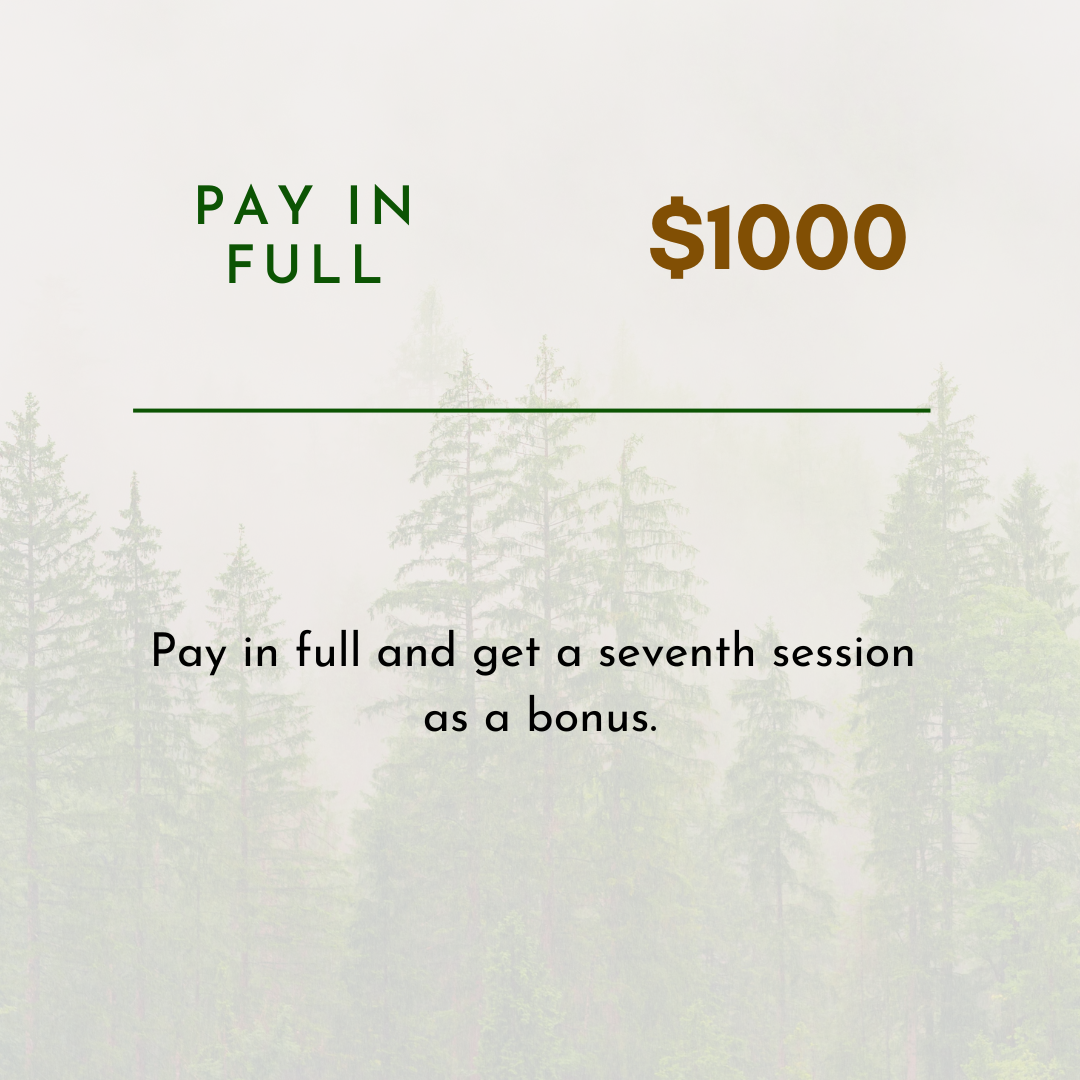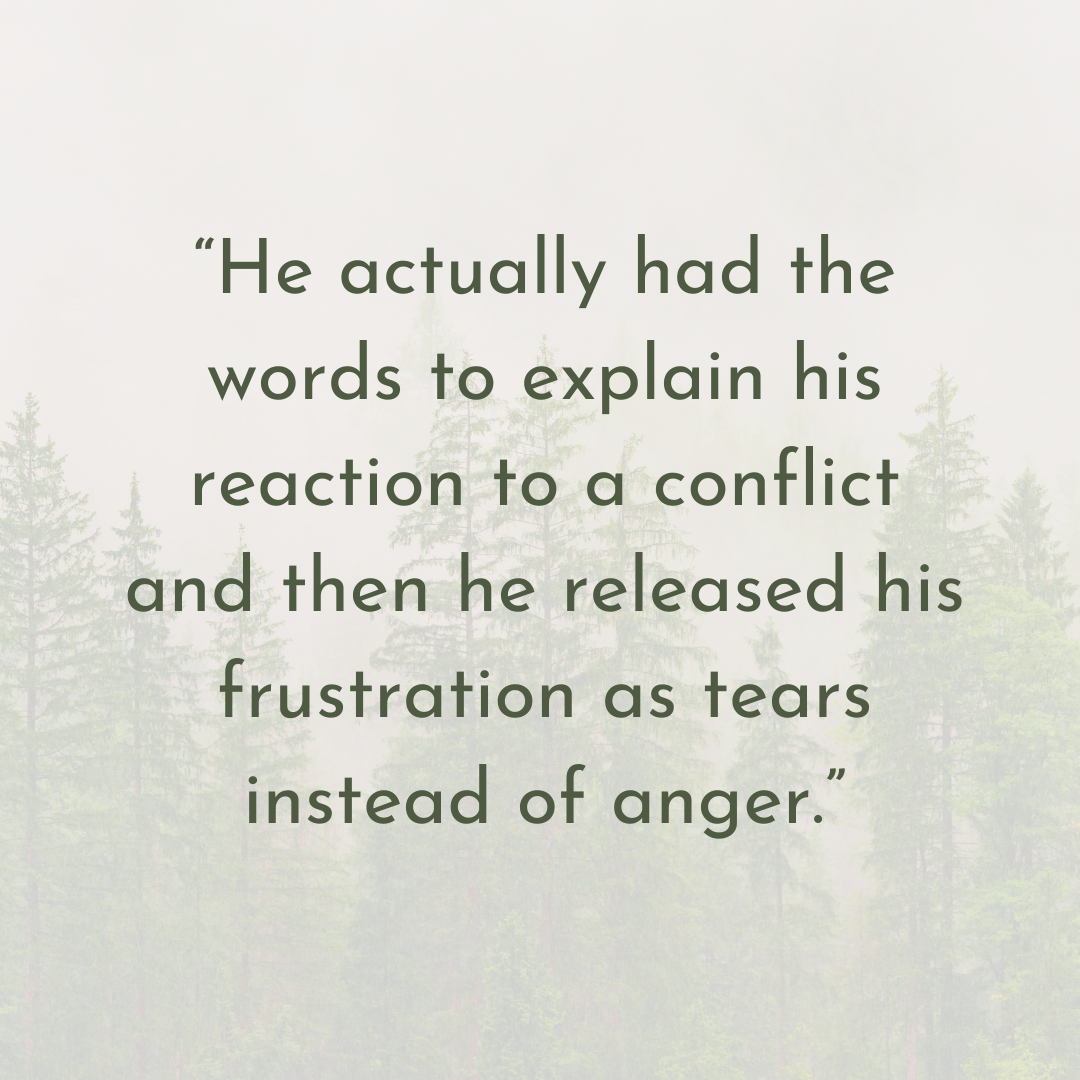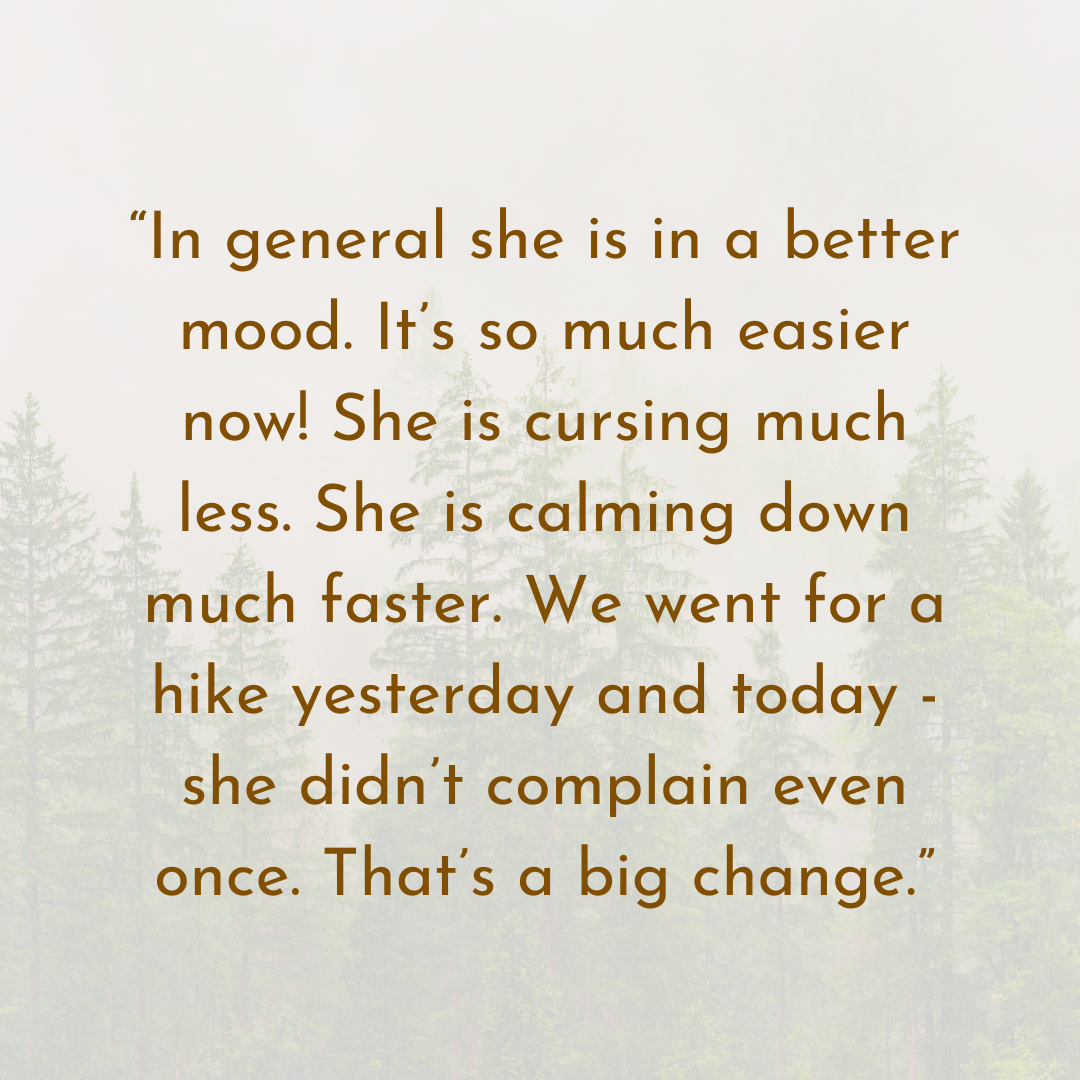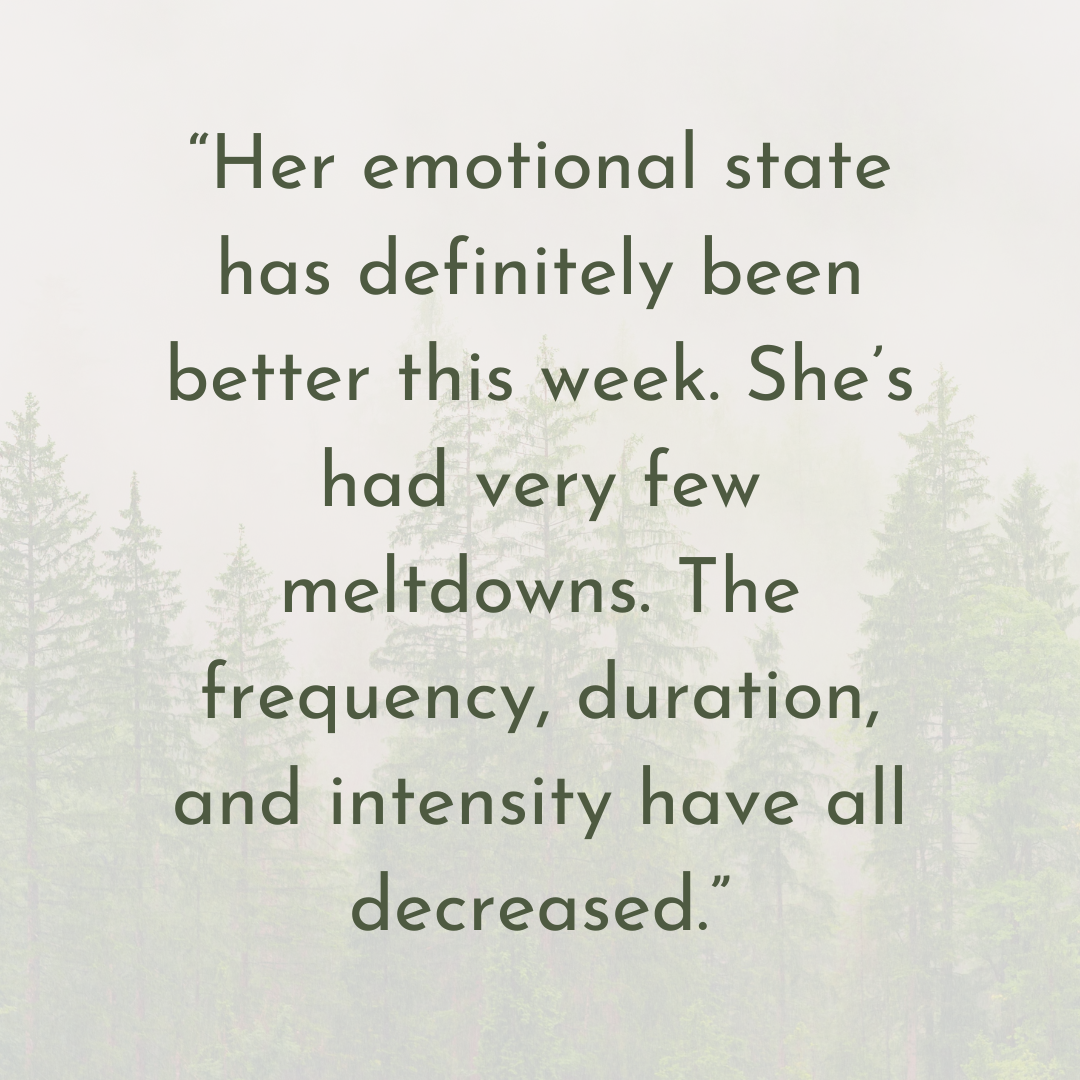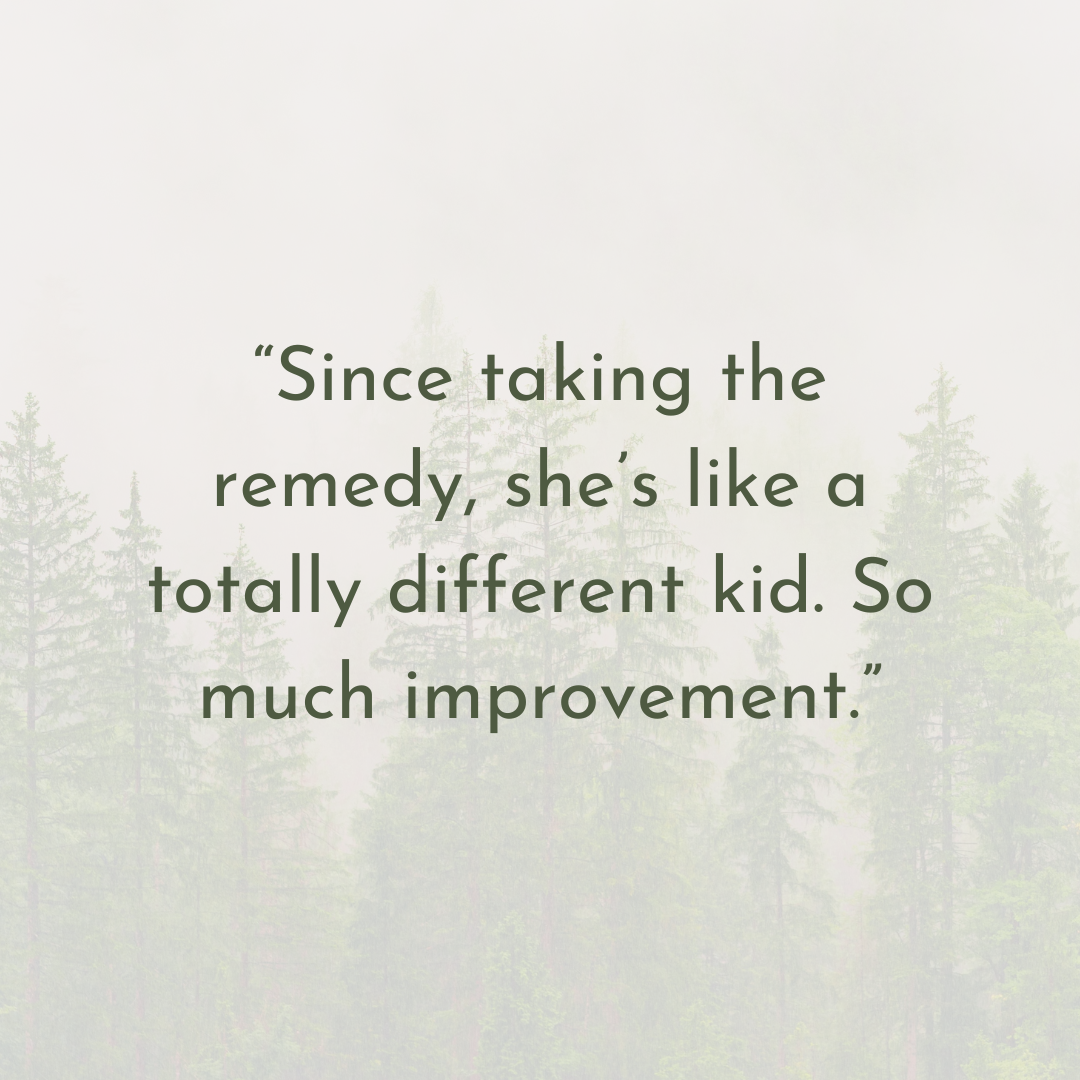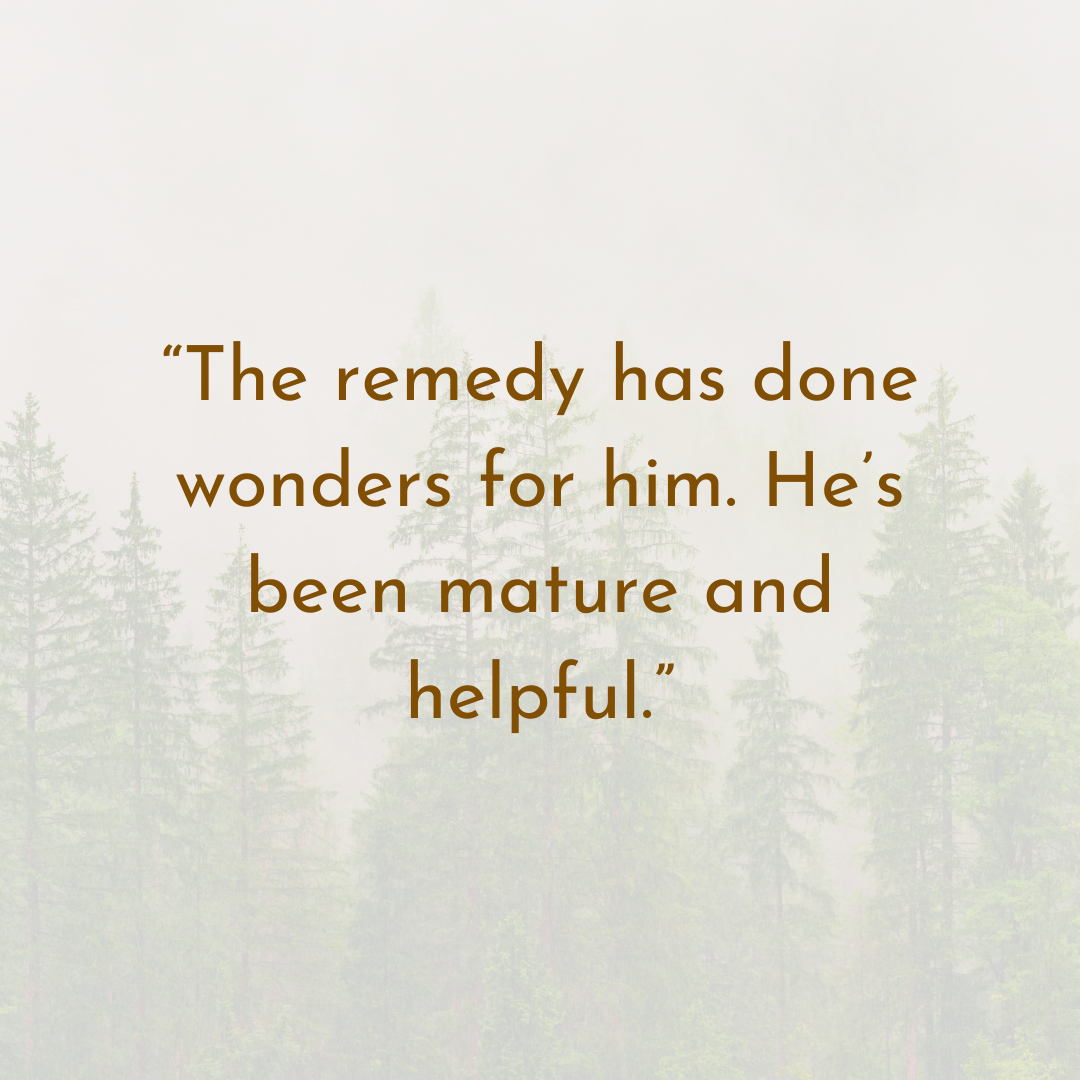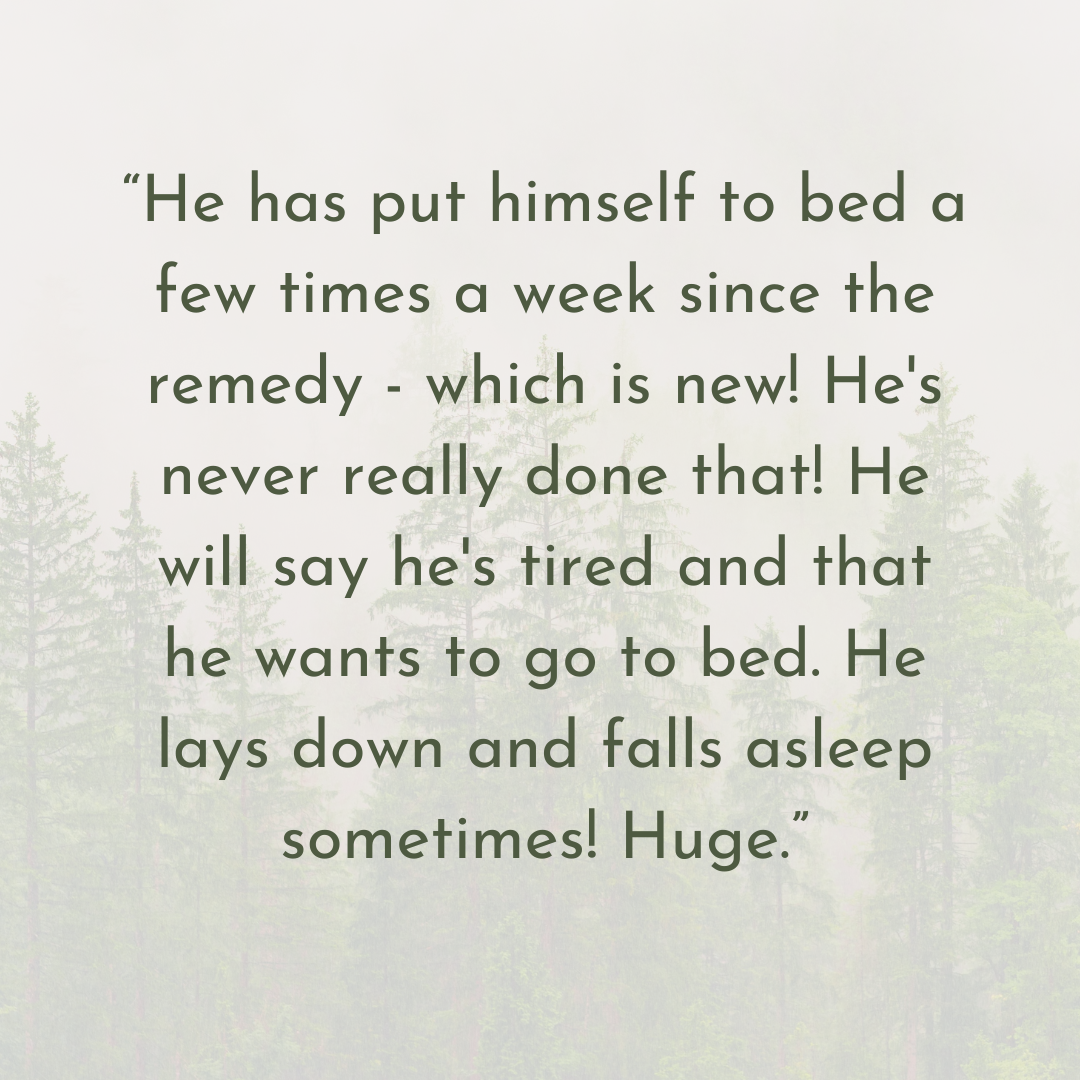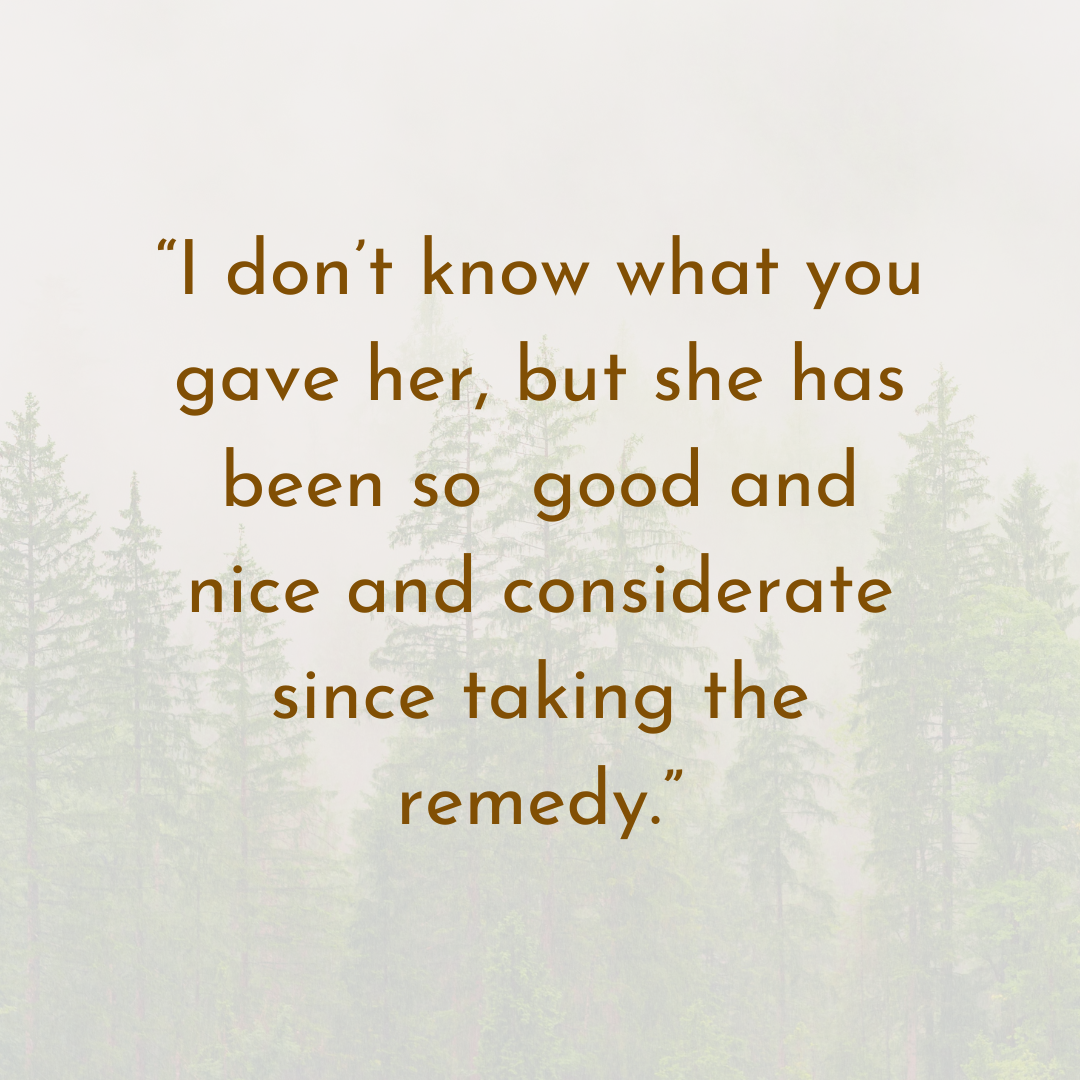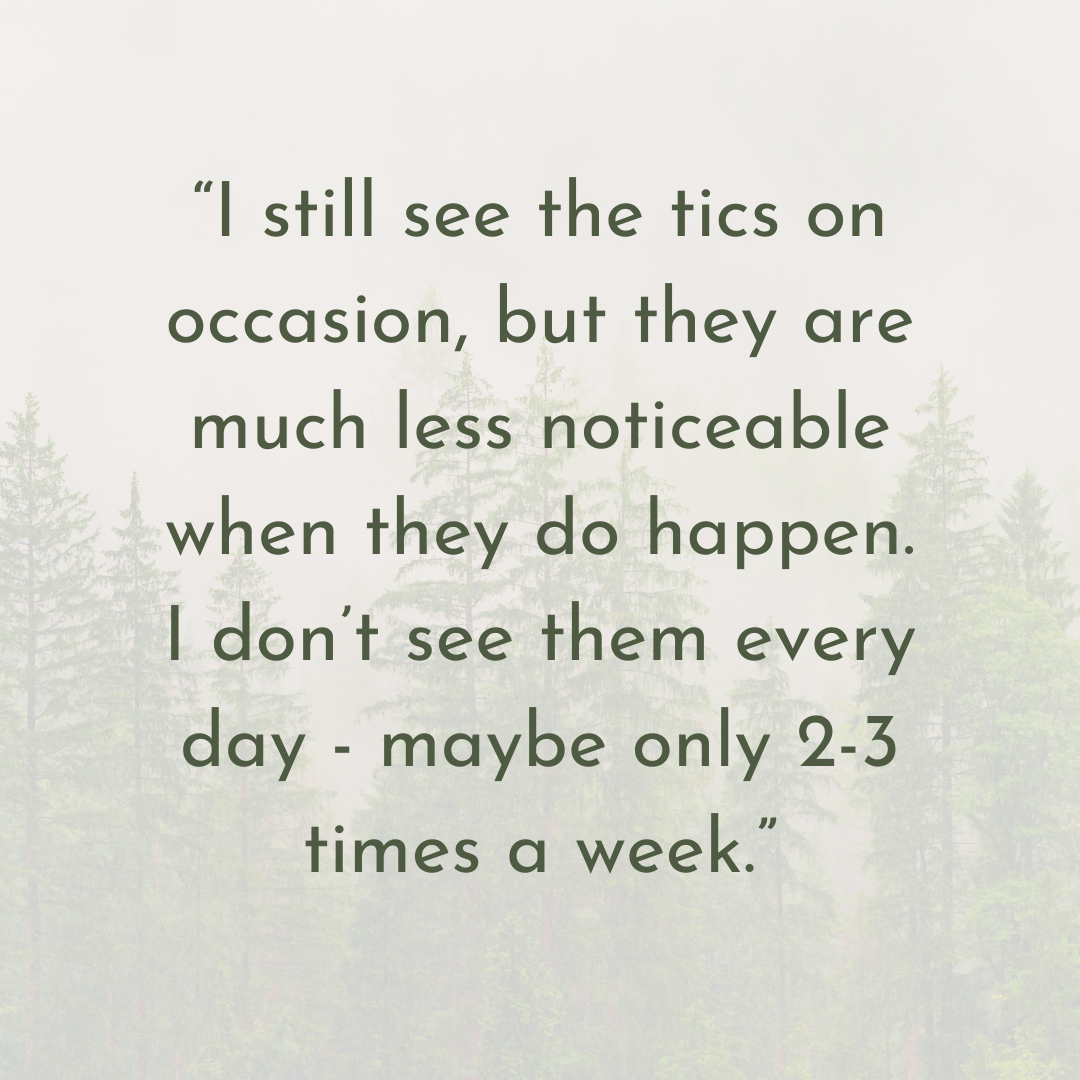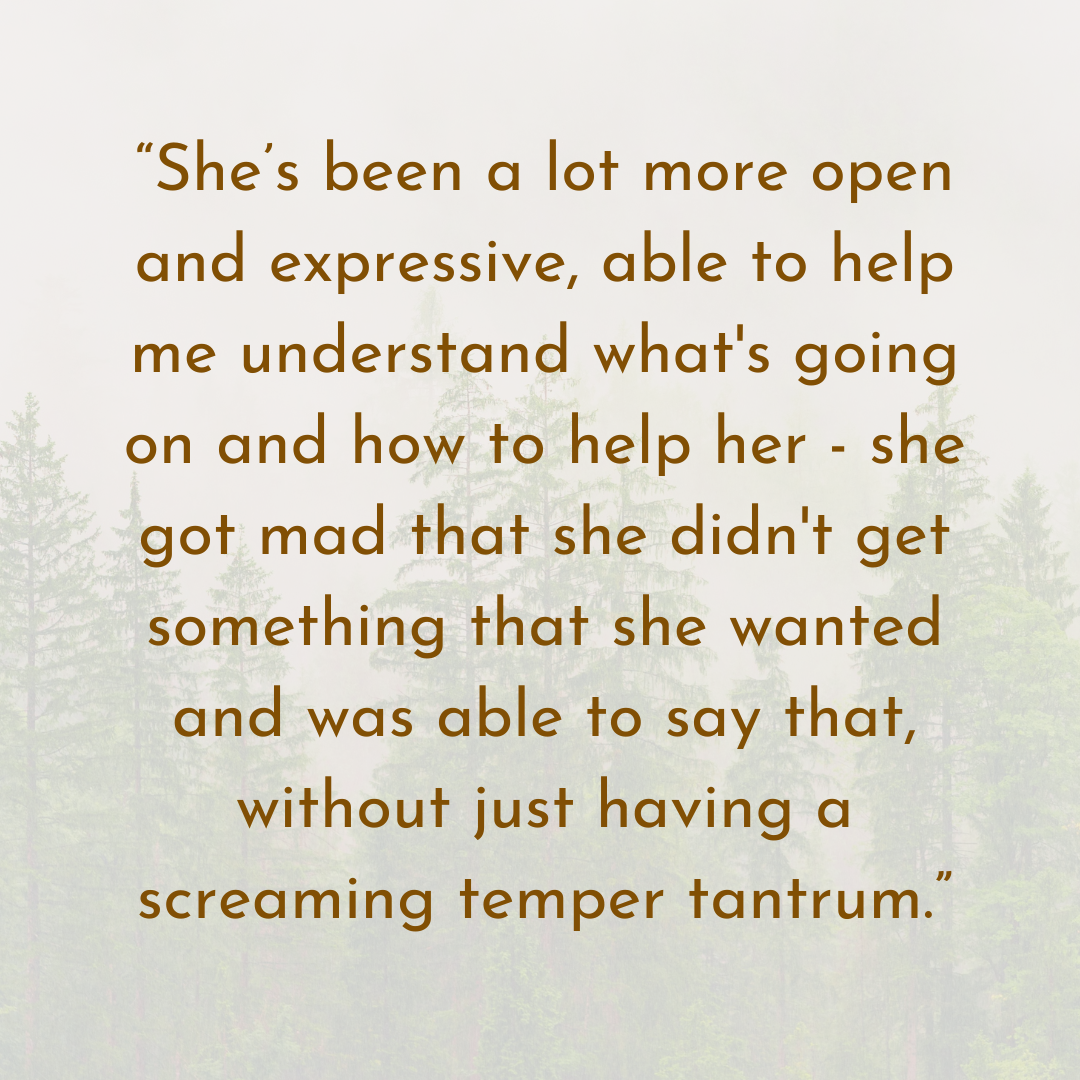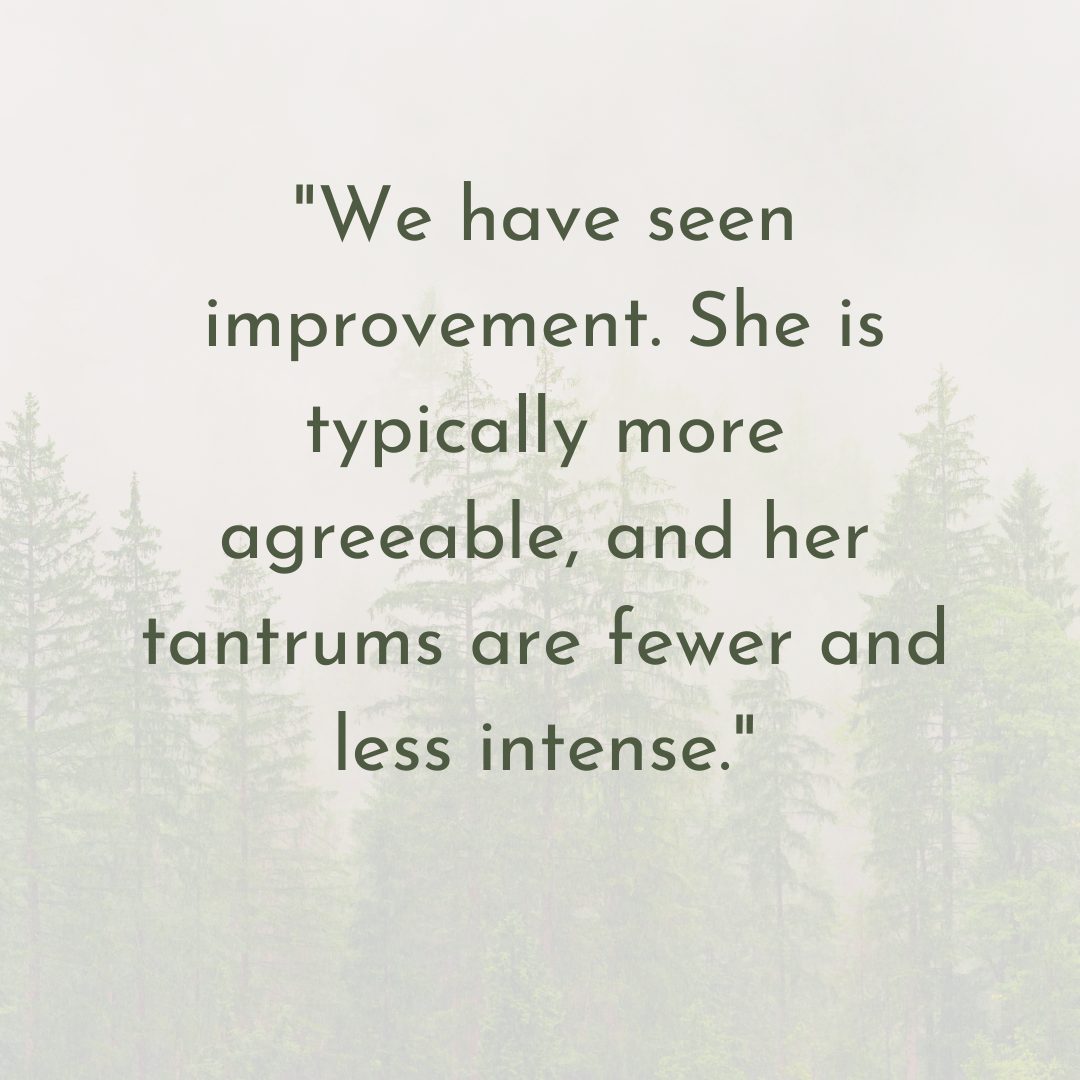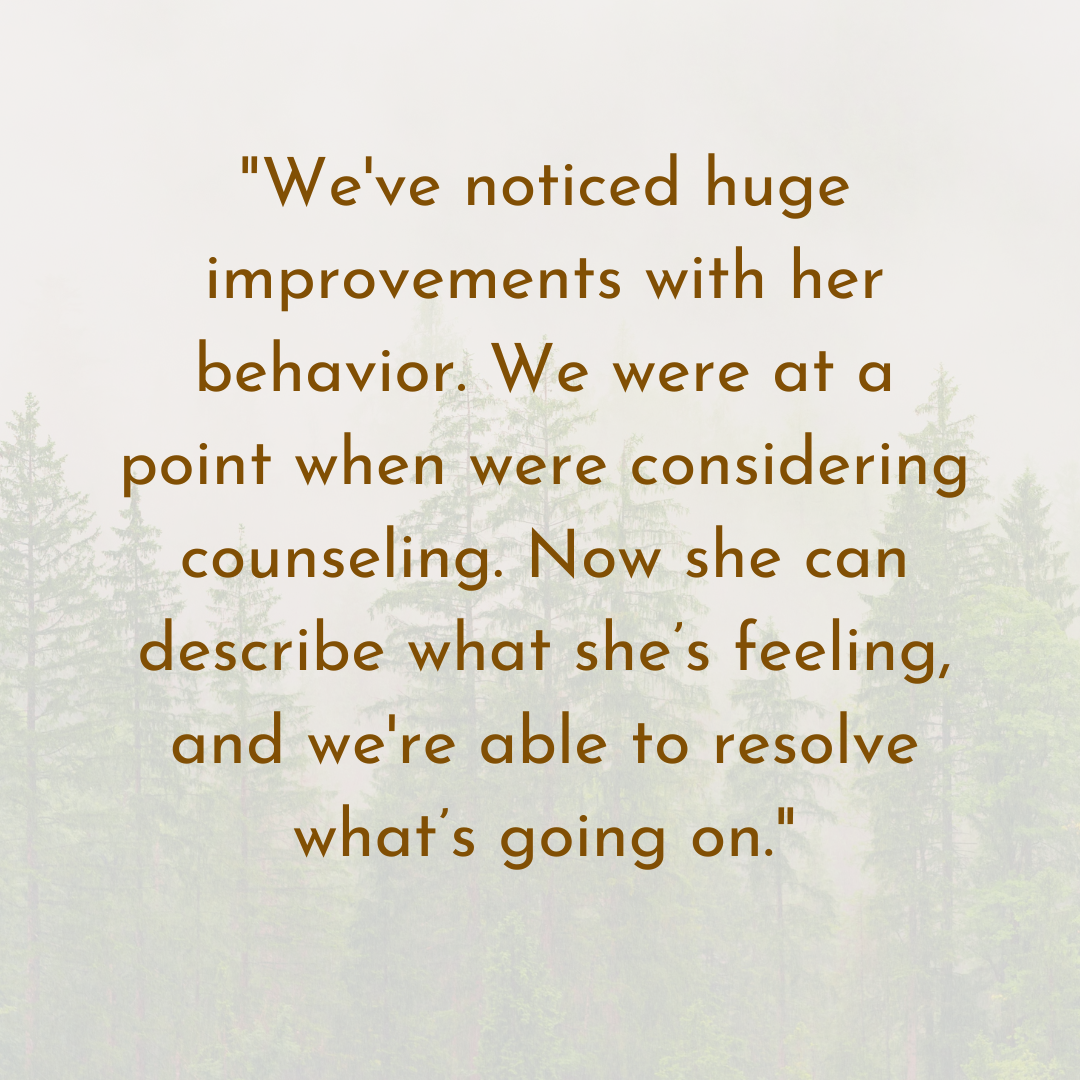
Let’s face it: parenting is hard, even under the best of circumstances. And being a parent in this day and age comes with its own set of challenges: loss of the proverbial village, climate chaos, economic stressors, and the like.
On top of all this, some of us have children who struggle with things like OCD, tics, emotional or behavioral issues, like tantrums and meltdowns — sometimes appearing overnight. This can be stressful for the entire family and everyone in your child’s orbit.
You may have a kid who requires a lot of extra energy and attention from you due to these neurological and behavioral issues. They may instigate fights with their siblings or other family members. They may leave chaos in their wake.
You may feel like you’re either constantly walking on eggshells to keep the peace — or you’re constantly butting heads.
Everyone else has to adjust around them — they can’t just go with the flow. You’re always bracing yourself for the next meltdown or the knee-jerk rebuttal to whatever request you give them.
I’ve had multiple parents tell me, with no small measure of guilt, that things are just more peaceful and the household runs more smoothly when their challenging child is not around.
And you KNOW that this isn’t THEM! You just want your child back.
You’ve read all the parenting books, tried all the techniques, have maybe even tried therapy and/or medications, or other holistic tools — but you’re looking for another way to help minimize the challenging behaviors, without huge lifestyle changes, reading more books, taking more classes, and navigating side effects or toxicity.
Do you recognize your child in this?
These are some of the Challenging Childhood Behaviors:
Emotional
Easily offended, hair-triggered
Anger and rage
Violent behaviors: hitting, kicking, pinching, biting, pulling hair
Emotional reactions out-of-proportion to the situation
Crying and depression
Impatience, getting upset if they do not succeed immediately
Seeming to lack empathy
Nervousness, anxiety
Makes continual demands on their parents
Passivity
Mental
Difficulty following directions or completing tasks
Slow comprehension (despite their intelligence)
Learning challenges such as dyslexia and dyscalculia
Messy and disorganized, leaving chaos in their wake
Switching rapidly from from one activity to another
Losing or misplacing items
Easily distracted
Dreamy, lost in their thoughts
Mood swings
Stubbornness
Difficulty with transitions or new situations
Neurological and Motor
Tics and Tourettes
OCD, compulsive or ritualistic behavior
Impulsivity
Does not seem to have a sense of danger
Hypersensitivities to certain stimuli (touch, light, taste, smell, sound)
Poor balance, clumsiness
Difficulty with writing
Restless, constantly on the move
Rough handling of objects, break things easily
Sleep disturbances
Delayed speech
Delayed or skipped developmental steps
Dislike of touch, rejection of body contact
Whether or not your child has a diagnosis, your child’s symptoms can improve.
Many high-needs kids find themselves on a spectrum of overlapping diagnoses, including ADHD, dyslexia, dyscalculia, OCD, Tourette’s, ODD, sensory processing disorder, and Asperger’s Syndrome. Or maybe your child has PANS or PANDAS.
As many developmental neurologists have pointed out, these are all different leaves on the same tree.
The underlying philosophy of my approach holds that many of these kids have difficulty processing and filtering stimuli, which results in a disturbance of perception. While there is no physiological problem with the sense organs themselves, there may be issues with the way these stimuli are processed in the brain. Frequently, we see kids who have either sensitivities or hyposensitivities to things like light, sound, touch, smell, and taste. Balance and proprioception can also be impacted.
Once these perceptual issues are addressed, improvements in behavior, as well as academic and social functioning, will result. Children become more grounded and comfortable in their own skin. The emotional and financial resources that were tied up in this child can be redistributed to the rest of the family system.
To medicate or not to medicate: that is the question.
Many of the families I work with are reluctant to try medication with their kids. Some have tried it, but either haven’t found it to be effective, aren’t thrilled with the side effects, or they just don’t feel right about it.
Consider some facts:
ADHD medications are the most commonly prescribed drugs for children.
These drugs often come with side-effects such as:
sleep difficulties
suppressed appetite
tics
mood swings, irritability
nausea
headaches
increased pulse and blood pressure
rebound effects when the medication wears off
upset stomach
dizziness
dry mouth
I have specialized training with working with challenging kids. I’ve helped many families experience more ease and less struggle — without drugs.
Whole Child Healing is a 6-month program designed to support children with neurological and psychological issues to become their best selves, so they can thrive at home and in the world.
What’s included:
6 monthly private sessions (first session is 1.5 hours; follow-ups are 45-60 minutes)
Support between sessions via a secure, HIPAA-compliant online portal
Customized remedy recommendations and adjustments as appropriate
Tailored instructions for how to administer your child’s protocol
Remedies and any recommended adjunctive modalities are not included and must be ordered separately.
The Process:
Step 1: I’ll gather information about your child so I can come up with the best treatment for them, paying particular attention to their sensitivities and the conditions that improve or worsen their challenging behaviors. One of the main tools I use is the Perceptual Checklist. We’ll also use the Conners Global Index to establish a baseline of challenging behaviors, and will revisit this assessment at each of our monthly meetings to assess treatment progress.
Step 2: Using homeopathy and other adjunctive therapies as needed, we’ll address your child’s underlying perceptual issues. As their system becomes better able to process stimuli, their nervous system will start to regulate. You’ll notice their challenging behaviors diminish.
Step 3: At our monthly visits, we’ll assess progress and make adjustments to the protocol as needed. Generally speaking, every visit results in some sort of change to the protocol, until treatment is no longer needed. At the end of the six months, we will discuss if your treatment goals have been met, or if it would be best for your child to have another six months of treatment.
Throughout our work together, I am here to support your family with whatever comes up along the way. I am available for communication at any point, with any questions, concerns, or situations that arise over the course of treatment.
The Tools
Classical homeopathy is the go-to and the starting point for this work, and has an 85% efficacy rate, following the process that I’m trained in.
If we’re not seeing the desired progress after some months, I will look to a gemmotherapy plant extract. Gemmotherapy extracts are made from the shoots and buds of plants, and are microdosed one drop at a time.
Primitive reflex testing and exercises for integrating retained reflexes may also be recommended.
Investment
There are three super easy, convenient ways to pay:
A taste of what’s possible: Client results
FAQs
-
No. I am not a doctor or a neuropsychologist. I am a homeopath. The questions I ask and observations I make are in service of supporting your child homeopathically — not for making a medical diagnosis.
-
Homeopathy works differently than Western medicine. While a diagnosis can often be helpful, it’s not required to be able to work with your child and get them on a healing path.
-
Your child’s behaviors don’t need to be off the rails in order for them to benefit from this work — but they might be a better candidate for my Kid’s Care Package.
-
Then you’re in the right place. Homeopathy is drug-free, so there are no side-effects, no risk of toxicity, and it has a strong safety profile.
-
I’ve done extensive training in a particular type of classical homeopathic analysis, based on the work of Clemens von Boenninghausen. The present-day homeopath and Swiss pediatrician, Heiner Frei, has adapted this methodology and updated it for the 21st century. Frei has conducted extensive research applying these techniques to children with ADHD and problematic behaviors. According to Frei’s research, this work has an 88% success rate with children with ADHD.
-
Everyone is different. You can expect to see a lot of improvement in the first 6 months, but yes, typically kids do need a bit more time to make a full treatment arc to the point where they no longer need treatment. You can expect the whole process to take about a year.
-
I haven’t had a client yet that didn’t get good results with reducing challenging behaviors and smoothing out developmental rough edges. Nervous system support benefits all aspects of the mind and body — typically, my kid clients experience developmental leaps and tremendous growth from our work together. Sticking with the process and staying in communication are essential to success.
-
Absolutely. Adult issues can be more complex, simply because they’ve had more time to crystallize. I’d love to have you in my practice. Please book a connection call, and we can have a chat about what your most troubling issues are and how to prioritize them, so I can best determine which of my programs would be the best fit for you.
-
Due to the intensive, hands-on nature of my work, refunds are not available once services have been rendered.
If you change your mind before we start our first session, you’ll receive a refund minus a $100 service fee, to account for the time that I spend on a case before we even meet together.
-
Then you’re in the right place. I get it — the challenging behaviors are what you want to change — and those are what get in the way of your child’s natural expression. By addressing the things that are in the way, your child will have more freedom to blossom into a more fully-expressed version of themselves, without sacrificing any of the character traits that you have come to know and love.
About Rachel
I’m Rachel, Certified Classical Homeopath and mother to a child with a history of challenging behaviors.
I like to joke that my child was so challenging that he sealed his fate as an only child. He required so much of my resources that I simply didn’t have the bandwidth to bring another child into this world during his early years.
Homeopathy and parenthood have been deeply entwined for me. When I was pregnant with my son, homeopathy saved both of our lives, bringing me back from the brink from a bout of life-threatening asthma. (You can read more about that story here.)
After experiencing such a dramatic recovery that altered the course of my destiny, I felt the call to become a homeopath myself. When my son was a toddler, I went on to study homeopathy and became certified in 2021.
As I started to grow my practice, I very quickly began to have a lot of children with challenging behaviors come through my doors. This soon became a specialty of my practice. Parents who know me and my son felt comfortable knowing that I get what it’s like to have a quirky kid. There can be a lot of shame and guilt when your child has neurological, emotional, or behavioral challenges.
Homeopathy really made a difference with the kids I worked with, and their parents reported how much easier their lives had become once their child became more well-adjusted. They were able to enjoy their time together and spend more time nurturing satisfying, high-quality, connective relationships.
After being in practice for a couple of years, I completed further training that really enhanced my skills in working with children with emotional and neurological issues. Since then, I’ve put a systematic plan into practice that has allowed me to serve children and families, with even better results.
One of my gifts is creating a safe and nonjudgmental space for all my clients. Whatever you and your family are dealing with, I’ve heard it all, and will support you however I can.



